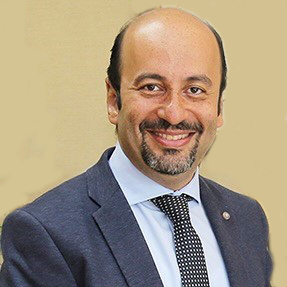Bachelor of Emergency Health (Paramedics) Program
TEXT
TEXT
Message from Head of the Department
Dr. Ahmed Abulnasr

Fatima College of Health Sciences offers a diverse and unique Paramedic program of study. As the UAEs leading allied healthcare training institution you can be assured that you will receive the highest level of academic and practical training that will ensure each Paramedic student reaches their maximum potential.
During the four-year program of study our students learn to manage life-threatening emergency situations. Dealing with major trauma, acute medical conditions and a range of injuries and illness. All in a day’s work for a Paramedic. Our students learn to work independently and as part of team that may include Police, Fire and Military responses.
As an approved provider of Paramedic education our program allows students to apply for registration as a Paramedic by all government healthcare governing bodies to achieve Paramedic licensure that allows graduates to work as registered clinicians across the United Arab Emirates.
During the four-year program of study our students learn to manage life-threatening emergency situations. Dealing with major trauma, acute medical conditions and a range of injuries and illness. All in a day’s work for a Paramedic. Our students learn to work independently and as part of team that may include Police, Fire and Military responses.
As an approved provider of Paramedic education our program allows students to apply for registration as a Paramedic by all government healthcare governing bodies to achieve Paramedic licensure that allows graduates to work as registered clinicians across the United Arab Emirates.
Warm regards,
Dr. Ahmed Abulnasr
Head of Emergency Health (Paramedics) Department
List of Programs and Local Accreditation Status
- Basic Life Support (BLS)
- Advanced Cardiac Life Support (ACLS)
- Neonate Life Support (NLS)
- Tactical Combat Casualty Care
- EMT Licensing
Have a standard of knowledge, skills and technical competency appropriate for an entry-level practitioner in emergency health (Emergency Medical Technician – Advanced (Paramedics).
Be prepared to maintain high standards in their professional life through a commitment to lifelong learning.
Communicate effectively within a multidisciplinary health environment.
Understand and demonstrate contemporary Paramedics practice and the professional roles and responsibilities of a Paramedics.
Understand trends in the provision of community-based emergency healthcare.
Be reflective practitioners who are equipped to undertake current and future roles as health professionals responsible for the provision of community-based emergency healthcare.
Be life-long learners with the ability to adapt to community health needs and changes in health systems and the provision of appropriate health care.
Have the knowledge and skills to practice in a safe and ethical manner in relation to themselves, their clients and the community.
Be client-centered in their approach, respecting the right of clients and their support networks to participate in decision-making.
Demonstrate awareness that people’s health encompasses their activities and participation as well as their body structures and functions, personal and environmental factors.
Be able to supervise, manage and take responsibility, as appropriate, when working in collaboration with other professionals, students, clients and their support networks.
Achieve a breadth of education with a tolerance for ambiguity and differing views.
Be reflective and compassionate, with a concern for issues of equity, equality, humanity and social justice.
Have the ability to learn independently and be innovative in their approach to analysis, critical thinking, problem-solving and evaluation.
Be able to effectively and efficiently communicate with other professionals, clients and the public.
Possess appropriate oral, written and IT skills, including the ability to present a coherent argument, negotiate effectively and manage conflict
Demonstrate awareness of the social, ethical, economic, political and environmental context of illness, health and wellbeing.
Be committed to the health of populations as well as individuals and be proactive in prevention-oriented Pharmacy practice and health promotion.
Understand the social and ethical dimensions of Paramedics professional activities.
Integrate knowledge of relevant public policy and health and social care systems into their practice.
Staff
Title Degree Campus
Dr. Ahmed Abulnasr Head of Department Master Abu Dhabi
Jason Perkins Deputy HoD Master Abu Dhabi
Sean Ferguson Senior Instructor MSc Abu Dhabi
Maxine Minton Senior Instructor MSc Abu Dhabi
Mark Che Senior Instructor MSc Abu Dhabi
Hadeel Hadidi Instructor Master Abu Dhabi
Dr. Tanveer Yadgir Instructor PhD Al Ain
Scott Cottam Senior Instructor MSc Al Ain
Kerryn Regan Instructor Msc Al Ain
Dr. Tshikani Khoza Senior Instructor PhD Ajman
Reon Conning Senior Instructor MHSc Ajman
Khaled Abdelrazek Lab Specialist Master Ajman